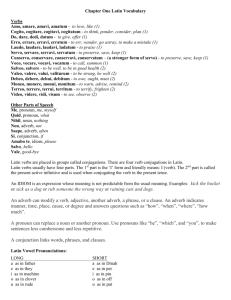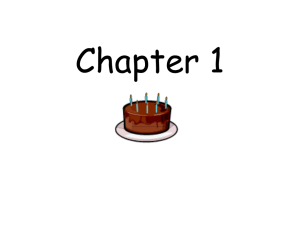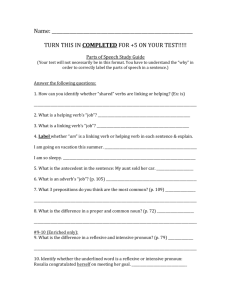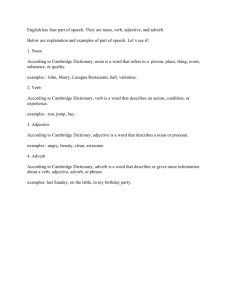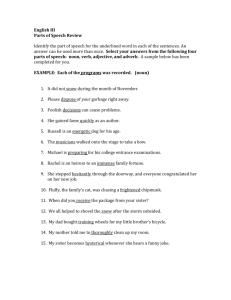Ecce Romani Chapter 1: Latin Vocabulary & Grammar Worksheet
advertisement
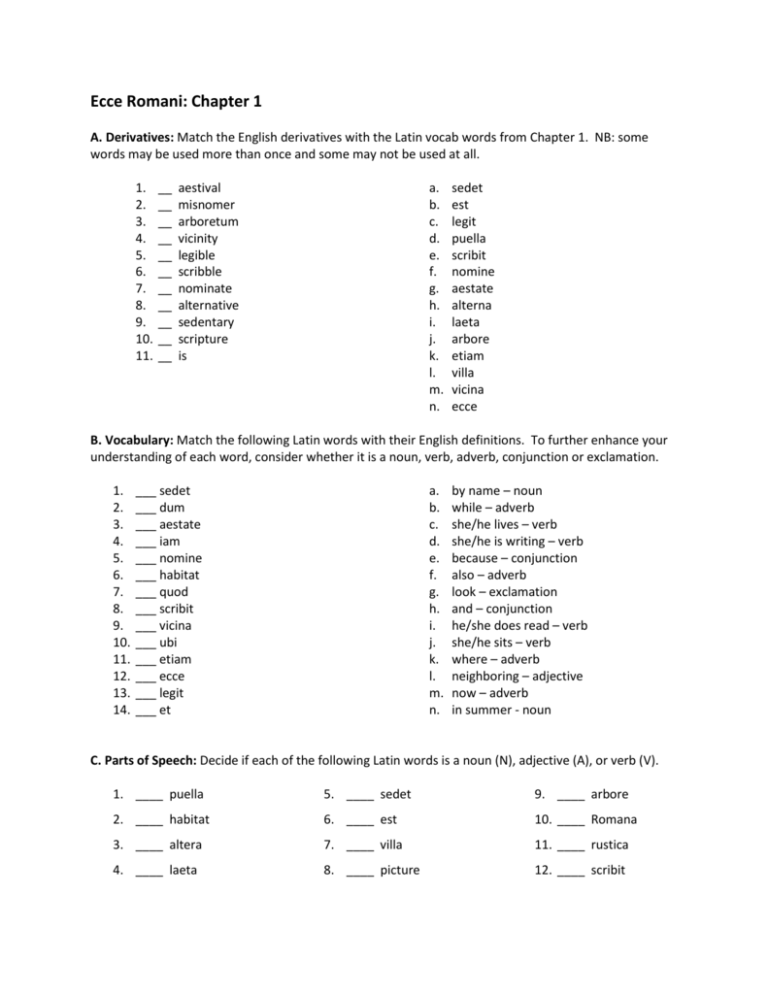
Ecce Romani: Chapter 1 A. Derivatives: Match the English derivatives with the Latin vocab words from Chapter 1. NB: some words may be used more than once and some may not be used at all. 1. 2. 3. 4. 5. 6. 7. 8. 9. 10. 11. __ __ __ __ __ __ __ __ __ __ __ aestival misnomer arboretum vicinity legible scribble nominate alternative sedentary scripture is a. b. c. d. e. f. g. h. i. j. k. l. m. n. sedet est legit puella scribit nomine aestate alterna laeta arbore etiam villa vicina ecce B. Vocabulary: Match the following Latin words with their English definitions. To further enhance your understanding of each word, consider whether it is a noun, verb, adverb, conjunction or exclamation. 1. 2. 3. 4. 5. 6. 7. 8. 9. 10. 11. 12. 13. 14. ___ sedet ___ dum ___ aestate ___ iam ___ nomine ___ habitat ___ quod ___ scribit ___ vicina ___ ubi ___ etiam ___ ecce ___ legit ___ et a. b. c. d. e. f. g. h. i. j. k. l. m. n. by name – noun while – adverb she/he lives – verb she/he is writing – verb because – conjunction also – adverb look – exclamation and – conjunction he/she does read – verb she/he sits – verb where – adverb neighboring – adjective now – adverb in summer - noun C. Parts of Speech: Decide if each of the following Latin words is a noun (N), adjective (A), or verb (V). 1. ____ puella 5. ____ sedet 9. ____ arbore 2. ____ habitat 6. ____ est 10. ____ Romana 3. ____ altera 7. ____ villa 11. ____ rustica 4. ____ laeta 8. ____ picture 12. ____ scribit D. Translations: Translate the following sentences. Then, identify the nouns, adjectives and verbs in each sentence. 1. The girl now lives in a roman house. 2. In the picture is a rustic villa. 3. Behold! A girl is reading and another girl is writing. 4. In the summer she sits under the tree. E. Culture: Refer to the Introduction (pp. xii-xv) and Chapter 1 contents to complete this activity. Fill in the blanks with the correct person, place, or thing from the word bank. Not every choice will be used. articles Romance Baiae sixty Campania French soot Spanish Germanic papyrus thirty Vesuvius wax 1. The year AD 79 saw the eruption of _________________, which destroyed the city of Pompeii. 2. Latin belongs to and is the mother of the _________________ language family. 3. Ink in the ancient world might be made from natural dyes, octopus ink, or _________________. 4. Our new family is staying near a Roman resort town called _________________. 5. Latin lacks words for a, an, and the, which in English are known as _________________. 6. Writing tablets were coated with a layer of _________________ so that they might be used again and again. 7. English belongs to the _________________ language family. 8. Latin books consisted primarily of a rolled-up paper that was made from reeds and was called _________________. 9. The Normans brought their _________________ language with them when they conquered England in 1066 and introduced many Latin-derived words into English. 10. Naples and Pompeii lie in which territory?
